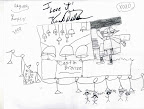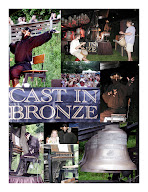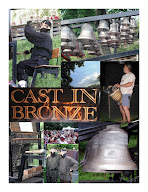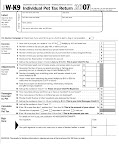Web 2.0: Thing 15: Library 2.0
What does Library 2.0 mean to me? I'm answering the second part of this question first because I'm hoping that it will help me relate better to the five articles that we read. (I'm not very patient with a lot of philosophising...especially when it comes to predicting the future.) For one thing, though, I definitely see that the role of the librarian shifting from information manager to information counselor as a result of web 2.0 technology. We are relinquishing control over the organization, acceptability, description, and in many cases, storage of data- to end users. For example, subject headings are becoming less and less of concern to librarians and our customers as they search for online information by tags assigned by other users. I think that one major focus that our profession is headed toward is teaching customers to evaluate the deluge of information received from open access sources like wikis. The physical Library 2.0 is often more of a technology center than a primary receptical for information. However, Library 2.0 is not completely limited by its walls thanks to the resources of which it makes available online or facilitates such availability. The library plays more of a supporting role in the world of information than one of authority in Library 2.0
The articles. originally I planned to discuss "To a temporary place and time" but the server controlling my crystal ball was down and all that speculation about Library 3.0 and 4.0 just gave me a headache! In fact, all of the articles gave me a headache! However, the one that made the most sense to me was "Away from the icebergs" because it is based on observations and written in simple terms. Rick Anderson, the author points out some library practices that slow the progress of Library 2.0. An example of hanging on to the old ways through the "just in case" collection is the acquisition of reference books knowing they may not receive any use at all. In my opinion, when it comes to book ordering in this day and age, less is definitely better. On the other hand, when it comes to Anderson's second point, "(over) reliance on user education," it is my opinion that there will always be a need for the end user to do a little reasoning when it comes to figuring out the technology. Unfortunately, at the same time it seems to me that a large percentage of people just have no logic and problem solving capabilities. So for the vast majority of end users, you can't make instructions simple enough. I see a lack of problem solving skills almost everyday in every generation that I serve at the library. Sometimes I think that it is ironically due to over reliance on computers in the first place. Finally, the "come to us model of library service" had already begun to change when I was still in library school before the Internet was available to the general public. Back then, "information brokers" on the cutting edge packed up their microcomputers, external modems, couplers, and sign in procedures for expensive bibliographic retrieval databases and hit the road looking for payment in exchange for information. Today, the Internet has opened things up so that the flow of information to the the end user's environment is so much more efficient plus lots cheaper.
Posted in: on Friday, April 18, 2008 at at 12:32:00 PM














hi alice! I'm commenting on your blog for thing #10. I feel a little inferior after looking at your blog. my posts are much shorter. I really like the virtual aquarium... I think I'm gonna have to steal it from you.